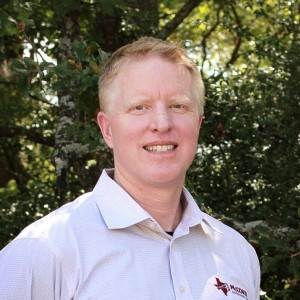
Engineering career tips from industry veterans.
As a student (or even a recent grad), you may not have had the opportunity to see any real-life aspects of your future career. Maybe you’ve spent hours wondering what your day will be like when you are actually employed. This can leave you frustrated and second-guessing your career goals.
Never fear! This week, two of MEI’s Professional Engineers are sharing some real-life engineering career tips from their combined ~40 years of experience.
First, let’s meet the engineers that contributed to today’s post:

Rex Woods is a licensed Professional Engineer in the state of Texas and has been working in the electrical engineering field for 28 years.
He currently serves as President at MEI.
“I truly enjoy my job at MEI. I typically get to work around 7:15 and begin working around 7:30. My day consists of answering questions about projects, dealing with personnel issues, reviewing projects, and giving direction concerning company issues. I have moved to less of a project reviewer since moving to President, but do appreciate the project review times during the workday. Lunch is 12-1 and I finish up just after 5.“

Eric Cowey is a licensed Professional Engineer in the state of Texas and has been working in the electrical engineering field for approximately 16 years.
He currently serves as a Staff Engineer at MEI.
“My day consists of solving problems of varying magnitude ranging from training co-workers to design issues. While I may not complete as much of what I wanted to get done on any given day I realize that I have helped several people that day to better understand what they are doing. By giving them a better understanding I realize that I’m making their work better and my job easier, which is a win for everyone in the long run.“
It takes all sorts of people and personalities to make a firm successful. We hope these engineering career tips will serve you well as you pursue your professional goals.
1. Make a good impression
Prior to a job interview, make sure that you do some research about the company. Be enthusiastic about the work you would do and have some ideas as to how you would fit in and advance the success of the company to which you are applying.
– Rex Woods
2. Start small and prove your worth
Don’t despise small beginnings. My first job started with cleaning and testing electrical meters, and I climbed to Manager of Engineering Services before leaving. Most places will not roll out the red carpet for young graduate engineers, but they are fairly quick to recognize talent and abilities.
– Eric Cowey
3. Carry the weight of your decisions
Engineering is an interesting career since the decisions you make on your designs could negatively affect the general population. Your design needs to balance being cost-effective for your employer or client, while also not risking public safety. It is very gratifying to see something you designed being used for the good of society. For me, it is seeing power lines installed in the field that I designed or had a part in designing.
– Rex Woods
4. Stay engaged with your career
Networking and conferences are key to maintaining engagement with your career. These activities accomplish a couple of major aspects that help you stay engaged. Networking allows you to socialize with other people that are in a very similar roles within the same industry. These individuals can help you understand that your issues are normal and may offer insights and potential solutions to your problems.
Conferences also highlight successful solutions to problems that other engineers have experienced (sometimes at great cost), and if you are lucky they will also cover what not to do. Attending conferences helps me stay focused on the more industry-level issues that sometimes you lose focus on over the year while dealing with your specific issues.
– Eric Cowey
5. Know how to communicate
Most engineering students feel that book smarts and proving that they’re right is the most important skill. However, I will argue that the most important skill is being able to communicate on an appropriate level. You don’t want your audience to feel like you are talking down to them.
As an engineer, you will be tasked with dealing with people of various technical skill levels. Your most important task is to make sure they all understand the design and the end-all goal, not that they feel like you are right.
Talking to a guy who just started the construction crew isn’t the same as a foreman which probably isn’t the same as a fellow engineer or a supervisor. The biggest point is to know your audience and not to judge a book by its cover.
I’ve worked with linemen who have everything from a high school diploma to a master’s degree. Despite their level of education, they have all taught me things in my career. Similarly, engineering school doesn’t teach you everything you need to know–it teaches you how to solve the problems that come your way.
Being able to solve problems doesn’t mean you have to have the solution to every problem. It means that you have the tools necessary to come up with a solution. Finding people with seniority in your field is critical to your success after graduation. I recommend networking with other engineers and other people that you will work with (in my case, lineworkers) who have many years of experience. You will likely learn more from them than you ever thought was possible.
– Eric Cowey
As you can see, being a successful engineer isn’t just about being technically skilled. Having the right attitude and knowing how to connect with people is just as important to your success!
Want to learn more about McCord Engineering? Click here to meet our team!